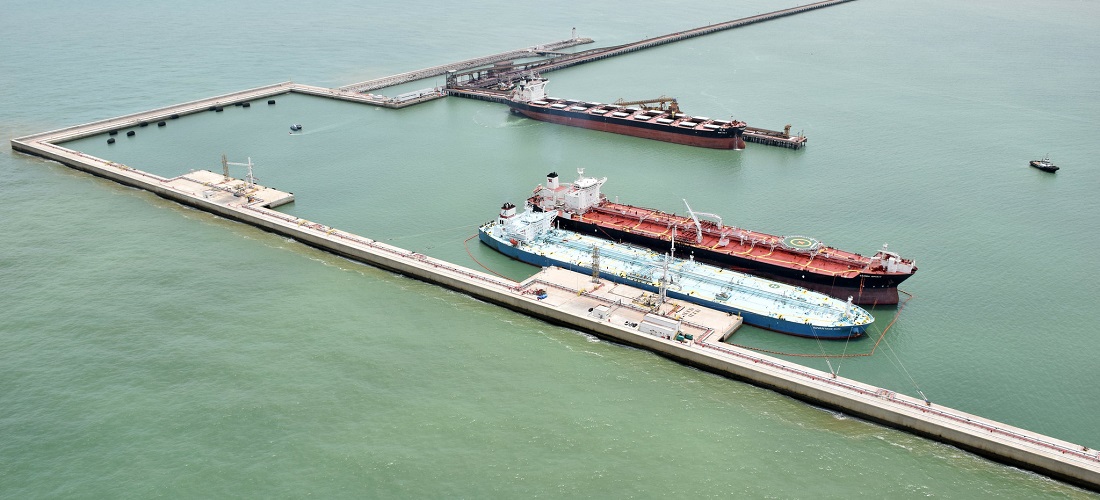
Brazil’s Port of Açu Sees Export Boom as U.S. Trade War Disrupts Global Flows
Apr, 09, 2025 Posted by Sylvia SchandertWeek 202516
Donald Trump’s trade war may be crushing global commodity prices, but it’s good news for one of Brazil’s largest ports, which is seeing a rise in export volumes.
Porto do Açu, located in the state of Rio de Janeiro and the country’s main oil export terminal, has already invested in additional capacity to help ease trade bottlenecks in agriculture and minerals.
Now, tariff-induced distortions in global trade are providing an extra boost.
“When the threats began, demand started to rise,” said João Braz, the port’s logistics director, in an interview with Bloomberg News. “We’re in a very good position here.”
The gains highlight how quickly other nations can seize opportunities as the U.S. and China engage in a trade standoff.
Last week, China said it planned to retaliate against the 34% tariff imposed by Trump on its products with an equal tariff.
Such a move could give Brazilian exporters a unique advantage to gain market share.
Brazil is China’s biggest trading partner and competes with the United States for dominance in global agricultural exports.
The South American country is also the region’s top oil producer and one of the world’s largest exporters of iron ore, which is used to make steel.
In February, the Trump administration announced a 25% tariff on steel and aluminum imports to the U.S.
According to Braz, at that point, Porto do Açu saw a spike in demand for pig iron, a raw material used by U.S. steelmakers.
He said that pig iron exports from Porto do Açu in the first quarter were 50% higher than in all of 2024.
Brazil is particularly well positioned to outpace the U.S. in the soybean market. It is the world’s largest soybean producer and independent consultancy Agroconsult expects domestic production to reach a record 171.3 million tons this year, thanks to favorable weather and expanded planted areas.
New data suggests that shipments in other categories also benefit from global developments.
Brazil’s exports of fresh and processed poultry reached 476,000 tons in March, according to the ABPA industry group on Monday, up 19% from a year earlier.
Poultry shipments to China rose by the same margin—20%—while beef exports were up by 20%.
However, Brazilian farmers continue to grow more soy than the country’s railways and ports can handle. “There’s a major bottleneck at both ends,” said Porto do Açu’s executive director, Eugenio Figueiredo, in an interview.
The port handles agricultural exports at a multipurpose terminal, T-Mult, and plans to double its annual capacity to 5 million tons in the coming years.
It dredges the channel in front of T-Mult to allow two Panamax vessels to be loaded simultaneously.
At least, the port says clients are stockpiling soy at its facilities, with most of the inventory headed to China.
A shortage of containers is also driving business to Porto do Açu. Attacks on commercial shipping in the Red Sea by Iran-backed Houthi militants have slowed coffee exports, for example.
Brazil is the world’s largest coffee exporter, and some sellers are currently packaging beans in oversized bags at Porto do Açu to avoid long delays at other ports.
The port began shipping large coffee bags in 2024 and expects volumes to increase this year. It also plans to start handling sugar shipments.
“Clients need an alternative,” said Braz. “The system is bottlenecked.”
Source: Bloomberg Línea
-
Shipping
Jun, 04, 2024
0
Peru’s New Maritime Cabotage Law Expected to Boost Economy and Foreign Trade
-
Ports and Terminals
Feb, 13, 2025
0
Porto Central Signs Contract with Norwegian Company
-
Ports and Terminals
Aug, 16, 2021
0
Santos Brasil signs lease agreements at the port of Itaqui
-
Ports and Terminals
Aug, 07, 2024
0
Use of 100% renewable electricity at the Paranaguá Container Terminal guarantees TCP international certification

